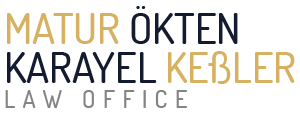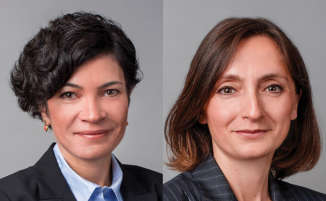Matur & Ökten’s Bahar Nalan Danış discusses combining mediation and arbitration
Today’s world is changing at a dazzling speed, and so is the way we deal with disputes. Although originating from thousands of years ago, we may well state that alternative dispute resolution (ADR) in its modern meaning was developed in the 20th century and has continued to evolve ever since, due to its fast solution-providing rate, which suits the requirements of modern business life.
In the last few decades, different forms of ADR have gone global. The forms that make up ADR include mediation, arbitration, negotiation, ombudsman services, consensus building and new hybrids of these processes, including med-arb, which features characteristics of both mediation and arbitration.
Brief background
Before reviewing the essence of med-arb, it is important to understand the meaning of each process, as well as their growth as ADR processes.
Mediation and arbitration have operated separately for many years. Mediation is the procedure wherein a neutral and impartial professional acts as a mediator, who facilitates the communication between conflicted parties and assists them to find a resolution. If the matter is resolved, parties sign a binding agreement. The advantages of mediation are that the parties craft their own solution and it is more affordable. The most common criticism addressed to mediation is that it does not guarantee a final resolution.
Arbitration, on the other hand, is more of a court-like process, where parties attend hearings, submit evidence, etc, based on which the arbitrator makes a binding decision. The benefit of arbitration is that it is faster and more efficient than traditional litigation. It is, however, criticised for being adversarial and the parties have limited control of the resolution.
The two methods can seem pretty different from each other in terms of the principles they rely on and how they work, yet great results are produced when they are combined together. The parties are guaranteed an outcome in med-arb, either through mediation or arbitration. Therefore, interconnecting mediation and arbitration can save time and cost in settling. It has become the most applied form of combined ADR processes over time, with an increased attention in the recent years, especially after the successful examples set by IBM v Fujitsu and Federal Deposit Insurance Corporation v Cherry Bekaert & Holland.
Two worlds colliding
Med-arb can be applied in different ways, the most common of which is the conduct of mediation and arbitration consecutively. In this method, the parties first try to resolve their dispute through mediation, aka ‘pre-arbitral mediation’. In case no understanding can be reached fully or partially within the pre-specified period or the time determined by the mediator/med-arbiter, parties continue with arbitration for the whole dispute or partially for the sections they cannot agree on. It is statistically shown that most cases of med-arb turn into successful mediations with no requirement for arbitration.
It is possible for both stages to be followed up by the same person who acts as the med-arbiter, which is known as the ‘med-arb same’ model. Or, a mediator and an arbitrator manage each respective phase, which is the ‘med-arb different’ model.
Turkish practice
Arbitration in Turkey is regulated under the International Arbitration Law No. 4686, dated 2001, whereas mediation is a much newer concept introduced to Turkish law in 2012 via Law No. 6325 on Mediation in Civil Disputes (Mediation Law). Neither law specifically refers to med-arb as a dispute resolution method, however it can be understood from the wording of Article 5/1 of the Mediation Law that there is no obstacle to applying arbitration following the mediation process. The said article, taking its basis from Article 10 of UNCITRAL Model Law on International Commercial Mediation, stipulates that ‘parties, mediator or third parties cannot allege the followings as evidences or testify as witness on these, when a lawsuit is filed or arbitration is resorted to regarding the dispute’.
On the other hand, Turkey passed Law No. 7155 on Legal Proceedings for Monetary Receivables of Subscription Agreements, which became effective as of 2019, requiring ‘mandatory mediation’ for commercial cases as a prerequisite before filing legal action. According to Article 23/18 of the cited law, in cases where there is an arbitration clause, such compulsory mediation condition shall not apply.
As for the question of whether a mediator can act as a med-arbiter under Turkish law, Communiqué on the Mediation Law dated 2013 set forth in Article 12/4 that the mediator cannot assume later the duty of an arbitrator in relation to the same dispute. This Communiqué was abolished and replaced with a new one in 2018, which does not refer to such prohibition. On the contrary, it is specified in Article 4/6 of Mediators’ Ethic Rules announced by the General Directorate of Mediation that the mediator can actually act as an arbitrator if the parties in conflict agree so in writing.
A first in the world: groundbreaking move from Turkey
As an exciting new development, the Istanbul Arbitration Centre (ISTAC) has just published rules governing med-arb on 15 November 2019 on its website, which has become the world’s first institutionalised written med-arb rules. By presenting the ‘first of its kind’ rules, ISTAC aims to widen the prevalence of med-arb.
We have witnessed many commercial disputes, both local and multinational, being settled in Turkey, especially in Istanbul via arbitration.
Med-arb can be more effective than arbitration indeed, as the parties will participate in the mediation phase in sincerity and good faith, knowing that if they fail to reach an agreement, they will lose control over the outcome and have to go along with the med-arbiter/arbitrator’s decision. It can also be more efficient than mediation, since parties will be more likely to assert reasonable demands and demonstrate a more conciliatory attitude than in mediation alone, increasing the opportunity for a more satisfying result for all involved.
We hope this two-tier system will also become a preferred choice of settlement in Turkey in the years to come.
For more information, please contact:
Bahar Nalan Danış, attorney at law – mediator (Young Mediators Initiative of the International Mediation Institute)
Matur & Ökten & Karayel Keßler Law Office
İnönü Cad No:24/4
Gümüşsuyu, Taksim
Beyoğlu
Istanbul
T: +90 212 260 1062
E: bahar.danis@maturokten.com
www.maturokten.com






















